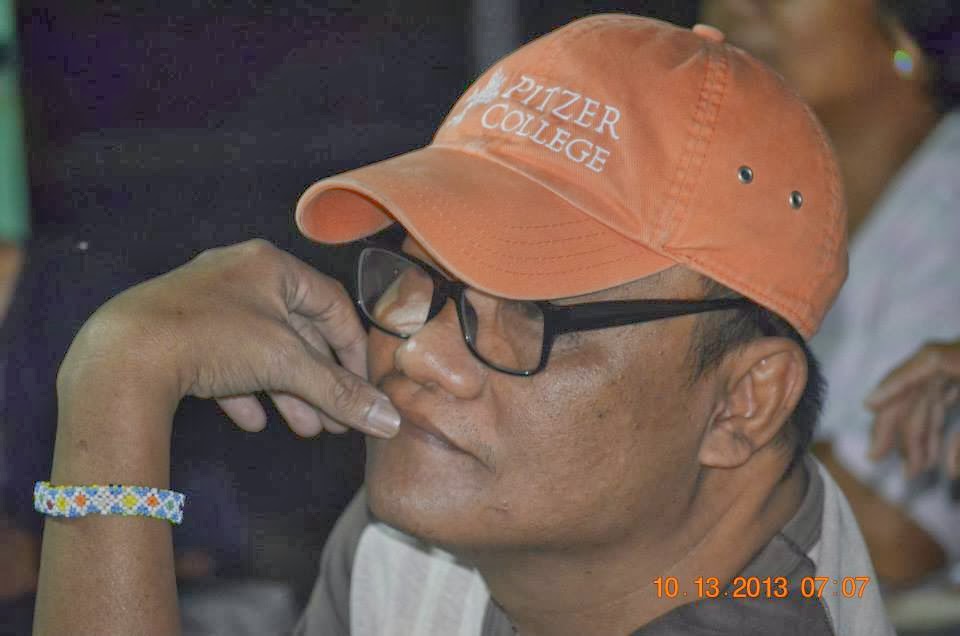The Philippine Catholic Church indeed suffered
under Martial Law. Priests and nuns were arrested, jailed and tortured by the Marcos’
military and even convents and seminaries administered by religious
congregations were raided and ransacked. The Church greatly suffered from harsh
government repression and harassment, though many priests and bishops at the
time were not bothered by these occurrences.
President Ferdinand Marcos declared martial law on
September 21, 1972 and its principal goal was to preserve the old order and
consequently, the oligarch’s throttlehold of the economy and to perpetuate
himself to political power. This resulted to massive violation of civil and
political rights of the people especially the basic masses, the anawim or God’s people. As the
oppressive regime blatantly suppress the people, some priests and nuns opted to
join the Communist movements, both open and clandestine, and resorted to or
sponsored armed struggle.
As the horror of PD 1081 unfolds, most bishops did
not speak against Marcos and the injustices suffered by the people under
martial law that is why the 17 bishops who signed the document “Ut Omnes Unum Sint”, the “silent”
bishops, who are composed of the majority, were criticized with these words: “Any criticism of government is then,
perforce, criticism of President Marcos, something most bishops are loathe to
do. Cultural Reasons could be adduced – deeply personal reasons too of
friendship for and indebtedness to the First Family.” Not only the First Family, the bishops and
priests then dined with the oligarchs and the elite. Not unlike today.
A certain bishop bravely stood against Marcos
dictatorship truly internalizing the prophetic role of the Church and her
social teachings. His name is Bishop Francisco F. Claver, SJ of then Prelature
of Malaybalay. Through his writings and pastoral works, he exemplary showed his
being champion for the cause of human rights. His voice rang loud against
all abuses happening under his diocese and the whole country. In his Pastoral
Letter in 1976, 4 years after the declaration of Martial Law, titled “A Prophet
to the Nations”, the bishop from Bontoc and an indigenous people himself,
affirmed that all must preach the Gospel in words and in deeds and as a
community and the Church must be genuinely critical, whether in support of or
in opposition to the martial law government of Marcos.
Bishop Francisco F. Claver is long gone and all we
can do is to wonder what if he is still young and alive today under the same
circumstances?
In the midst of the recent killings brought about
by the government’s supposed War on Drug where innocent lives were lost and the
victims denied of due process, where Catholics are killing fellow Catholics,
this excerpt from Bishop Claver’s “The Blessing and the Curse” remains thunderously
relevant: “I would especially invoke
God’s wrath on those who inflict actual physical harm on defenseless people in
the name of “government security”. People flagrantly and publicly guilty of
this sin against our common humanity and dignity have their own cut themselves
off from the Church.” Tough words,
aren’t they? Bishop Claver believes that change must be built on God-given
dignity and not on force and armed might, that the Church has the right and the
obligation to speak out, even in so-called political matters, when and insofar
as they have moral implications, when they violate the laws of morality. To me,
Marcos’ Martial Law is not to be forgotten so the faithful must declare in
unison, “Never Again!”
Last Sunday, during the celebration of the Solemnity of Christ the
King at the Sain Joseph the Worker Cathedral, Bishop Antonio P. Palang,
SVD, DD of Occidental Mindoro stressed in his homily that we should forgive
Marcos. Well, I took the good prelate’s words as an expression of fatherly
concern but I am certain, and the good bishop knows for sure, that he could not
make a decision for his flock. Those who oppose the burial could not abandon
their judgment in this present historical issue more so since what was at stake
is the carefulness of their actions as actors of history.
Now that we are told to “move on” by some quarters
and personalities even inside the Church and forget all the injustices and
horror of Martial Law but many of us won’t heed to the call. I wish that in the
future, if same declaration is imposed by whoever president, may the pastoral
actions and writings of Bishop Francisco F. Claver challenge our priests and
bishops in the whole Philippines to stand against state repression and not be gratified
with the comfort of their air-conditioned room in the company of their altar
boys and counting their millions from the donating thieves in barong tagalog…
-----------
(Photo:
Catholic News Asia
Reference
: Pasquale T. Giordano, SJ, “Awakening to Mission: The Philippine Catholic
Church 1965-1981”, New Day Publishers, January 1987, p. 155-159.)





